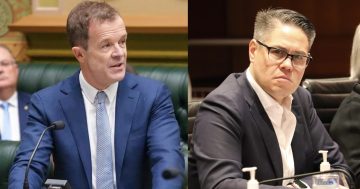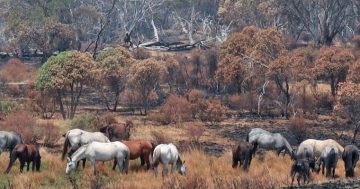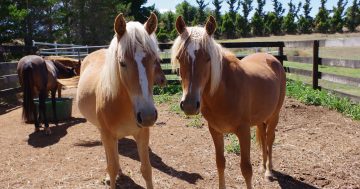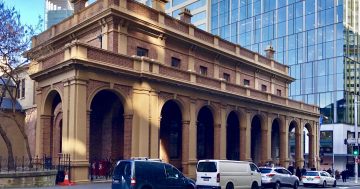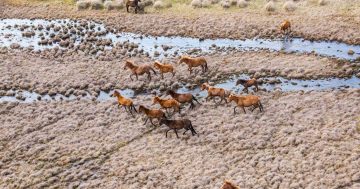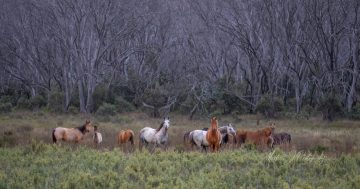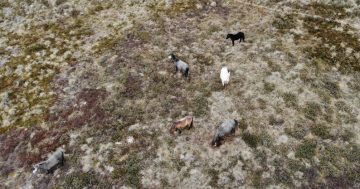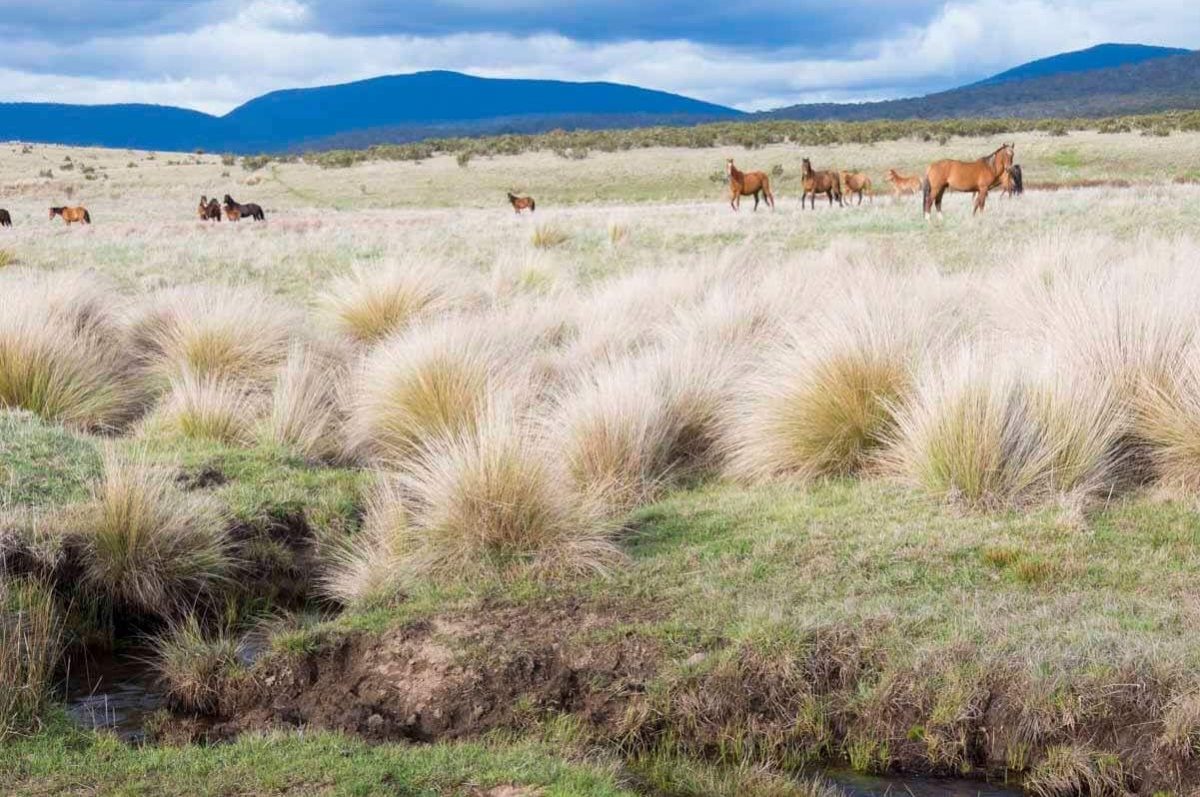
Wagga Wagga MP Dr Joe McGirr has called for the Kosciuszko Wild Horse Heritage Act 2018, known as the Brumby Bill, to be abolished. Photo: Invasive Species Council.
There’s been a call for an escalated cull of wild horses, or brumbies, in the NSW Alpine National Park from the sitting Wagga Wagga MP, Dr Joe McGirr.
Dr McGirr, who outlined his policy agenda on Monday ahead of the 25 March state election, has affirmed his stance on the culling of the species from Kosciuszko National Park (KNP), demanding the Kosciuszko Wild Horse Heritage Act 2018, known as the Brumby Bill, be abolished.
The bill, enacted to recognise the heritage and cultural value of wild living horses in certain parts of the NSW Alpine National Park, also prohibited lethal culling in certain parks and made provision for the oversight of scientific and community advisory panels to advise the NSW environment minister on a new management plan.
On 24 November, 2021, the NSW Government finalised a new Kosciuszko wild horse management plan that would reduce the population from about 14,000 to 3000, over five years.
But a NSW Government survey conducted in November 2022 estimated 18,814 wild horses now populate the park, up from 14,380 in 2020.
Dr McGirr said protecting KNP from destructive feral animals was an important issue for his electorate, the state of NSW and all of Australia.
“The numbers have to go down,” he said. “I want to see the population sitting at about 3000 like originally promised, with far stricter controls and regular reporting of numbers.”
While reiterating his desire to see the wild horses treated with compassion and care, Dr McGirr said removing and rehoming tens of thousands of them was not possible.
“There will need to be an escalated degree of culling and population control methods,” he said.
“I have been an advocate on all of these issues throughout my time in Parliament, and the electorate expects me to continue to do so. KNP is a unique landscape that you can only truly appreciate once you’ve been there.”
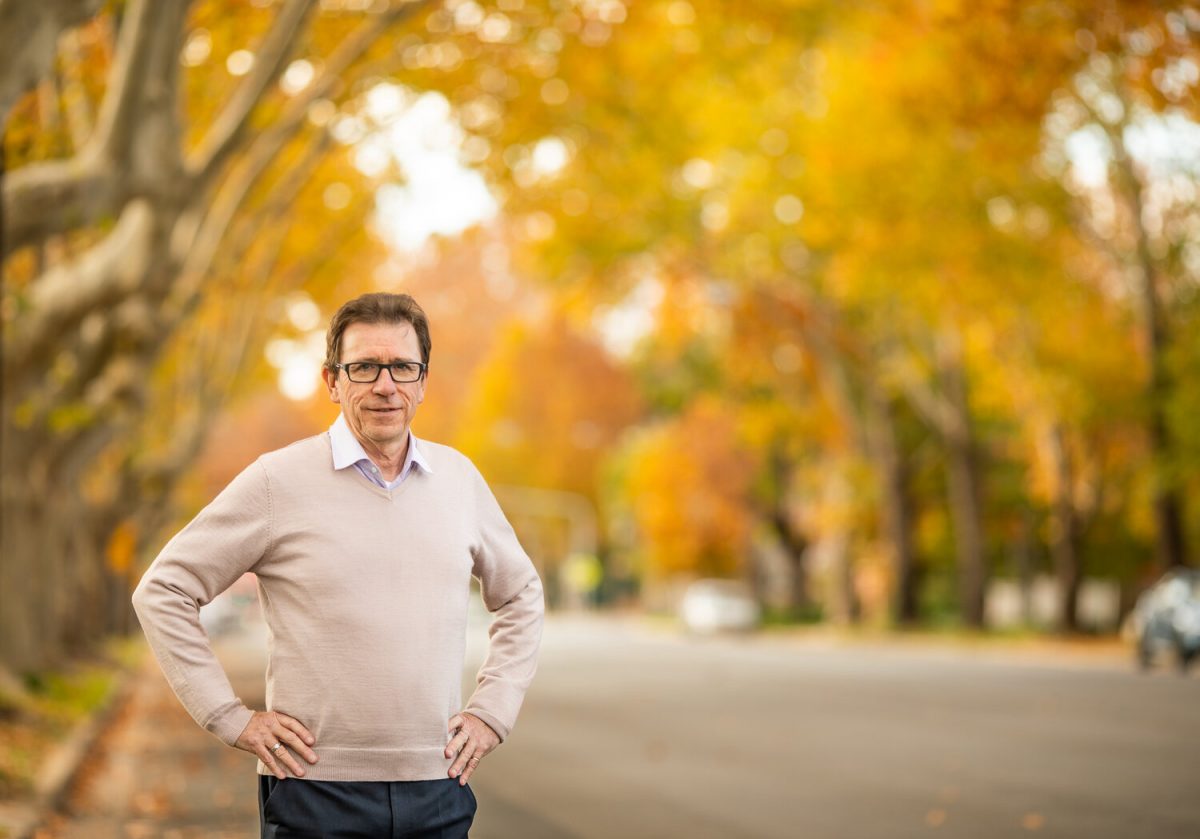
Dr Joe McGirr: “The numbers have to go down. I want to see the population sitting at about 3000 like originally promised, with far stricter controls and regular reporting of numbers.” Photo: Dr Joe McGirr.
Dr McGirr claims to have the full support of the Parliament.
Invasive Species Council advocacy manager Jack Gough, in applauding Dr McGirr, has called on all parties to support greater action on wild horses and other invasive species.
“Every Liberal and National MP I have spoken with has expressed dismay or disappointment about [former NSW deputy premier] John Barilaro’s Brumby Bill, which prioritises invasive feral horses over our native wildlife,” Mr Gough said.
“Nobody likes killing animals, but the sad reality is that we have a choice to make between urgently reducing the numbers of feral horses or accepting the deaths of our native animals and damage to their habitat.
“I hope this important stance by Dr McGirr can be the catalyst for a shift in the Coalition’s position on the legislation and lead to more resources going towards feral horse control regardless of who wins the upcoming election.”
A former Snowy Mountains National Parks and Wildlife Service (NPWS) regional manager, Ross McKinney, now a commercial horse-riding tour guide, has been working, walking and horse riding in KNP for more than 50 years.
“For my first job as a parks ranger in the early ’70s, I was part of horse patrols and it was extremely rare ever to see a feral horse,” he said.
“Since the 2003 fires, though, the feral horse population has exploded.
“When I take guided horse rides through the park now, I frequently encounter mobs of over 70 feral horses in one spot. Sometimes it is necessary to guard our clients from the aggressive stallions.
“In the ’70s I could drink from any stream I wanted to in Kosciuszko National Park. Now I would never drink from any stream due to the pollution by feral horses.
“I am saddened and angered at the damage I see these horses causing to sensitive natural environments and our water catchments.”
Professor Jamie Pittock of Australian National University’s Fenner School of Environment and Society says the years of delay and inaction have seen feral horse populations rapidly increase and this has had devastating environmental consequences.
”The destruction of alpine swamps – home to threatened species such as corroboree frogs – and polluted headwaters of our major rivers have become mud baths.”
Last month, independent ACT senator David Pocock moved to establish a federal Senate inquiry into the issue of wild horses in Australian alpine national parks.
It will investigate best practice for reducing feral horse numbers in the Australian Alps, and their impact on biodiversity, water and Indigenous cultural heritage.
The committee will also look at Commonwealth powers and whether state programs for controlling feral horses are adequate.
Submissions to the Senate committee close on 11 April, with a report due by 9 June.
Original Article published by Edwina Mason on About Regional.







